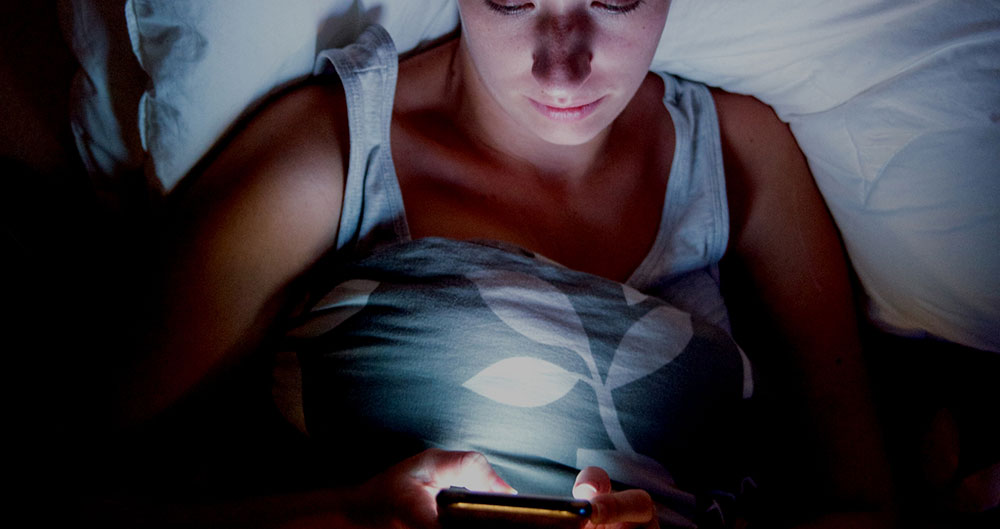Monitoring sleep/wake behaviors and blue light exposure is a critical component in our personalized care process.
Studies show that adults and children who suffer from a mental illness, are more likely to have an underlying sleep problem. Our research and experience show that a person is more prone to respond to treatment if a sleep problem has also been addressed.
Whether or not a patient reports a specific sleep problem, a sleep assessment (called Actigraphy) is always done.
This information gives our therapist more insight into the presenting symptoms of the patient. Smartphones, tablets, desktop computers, LED and fluorescent lamps all can give off a significant about of light in the blue spectrum which the human body naturally needs during daylight hours.
However, overexposure to blue spectrum light in the evenings hours, especially before bedtime, can reduce the brain’s natural production of a sleep-inducing chemical called melatonin. Insufficient levels of melatonin can have a negative impact on the quality and duration of sleep a patient may be able to achieve.
An important component of the personalized care Long Island Neurocare Therapy provides is understanding the quality of sleep a client can achieve each night.

Each patient is given a unique watch-like device to wear for seven days or more days. This device monitors daily activities, blue light exposure and sleep quality factors.
After the monitoring period, the watch is returned to our clinic where the information collected is downloaded and summarized in a report which is then analyzed by a trained therapist.
In addition to the watch, the patient also completes a sleep/wake diary that helps achieve the collection of information the therapist needs to develop the patient’s treatment plan.
The results of a sleep assessment are used to visualize a patient’s sleep patterns, activity levels and the ambient light in the person’s surroundings throughout their daily activities. It indicates whether sleep times are consistent or disturbed due to other factors, such as blue light or activity levels.
This information is shared with the patient and is integrated into their treatment plan.
Good sleep is necessary for optimal health and can affect hormone levels, mood and weight.
Scientific research has shown that when we do not have good sleep, this can negatively impact proper mood regulation and the quality of attention.
Do you or a loved one struggle with falling asleep or staying asleep throughout the night or wake up feeling exhausted or overly tired during the day? If yes, then you or a loved one might have a sleep disorder.
Copyright © 2025 | All Rights Reserved